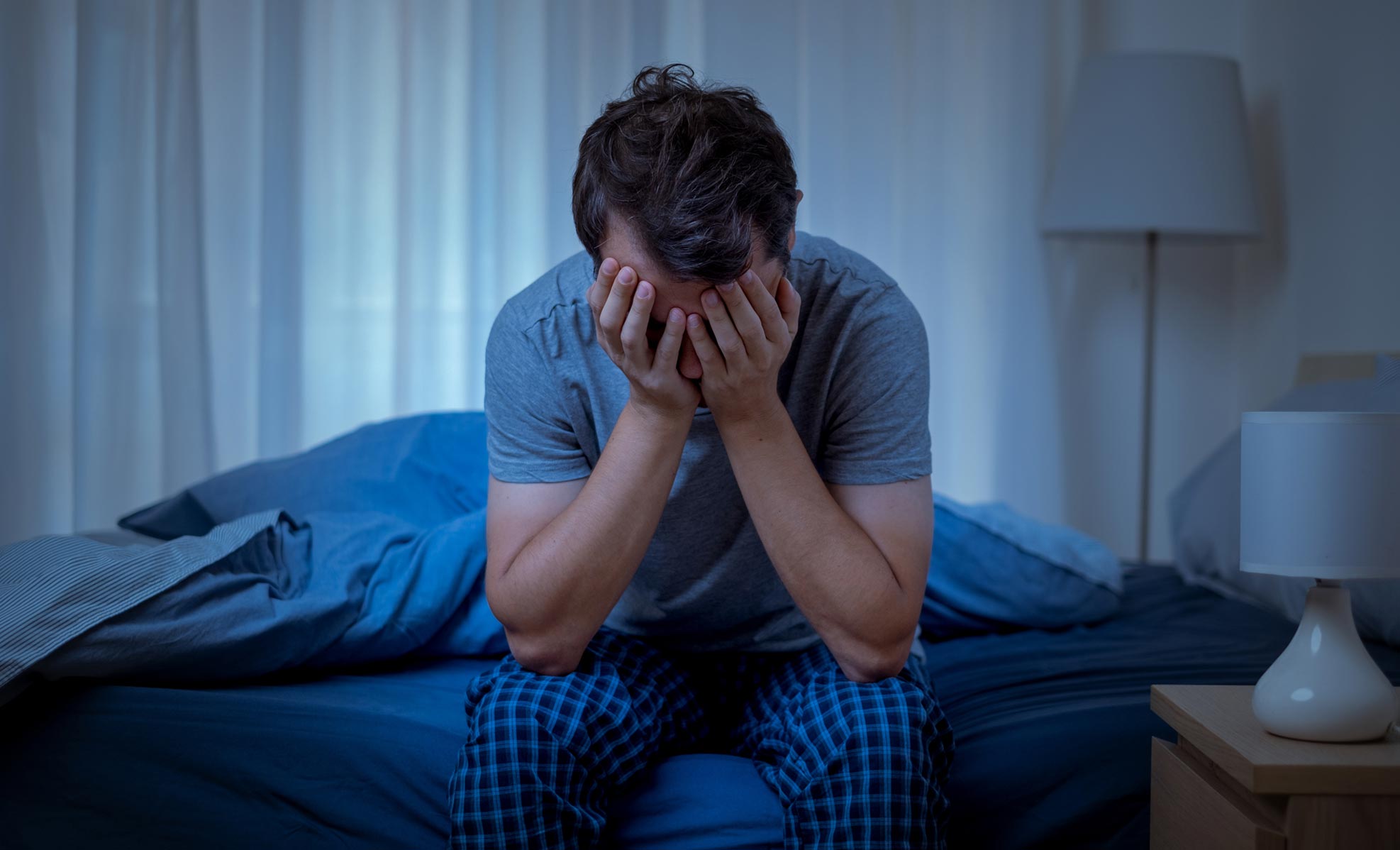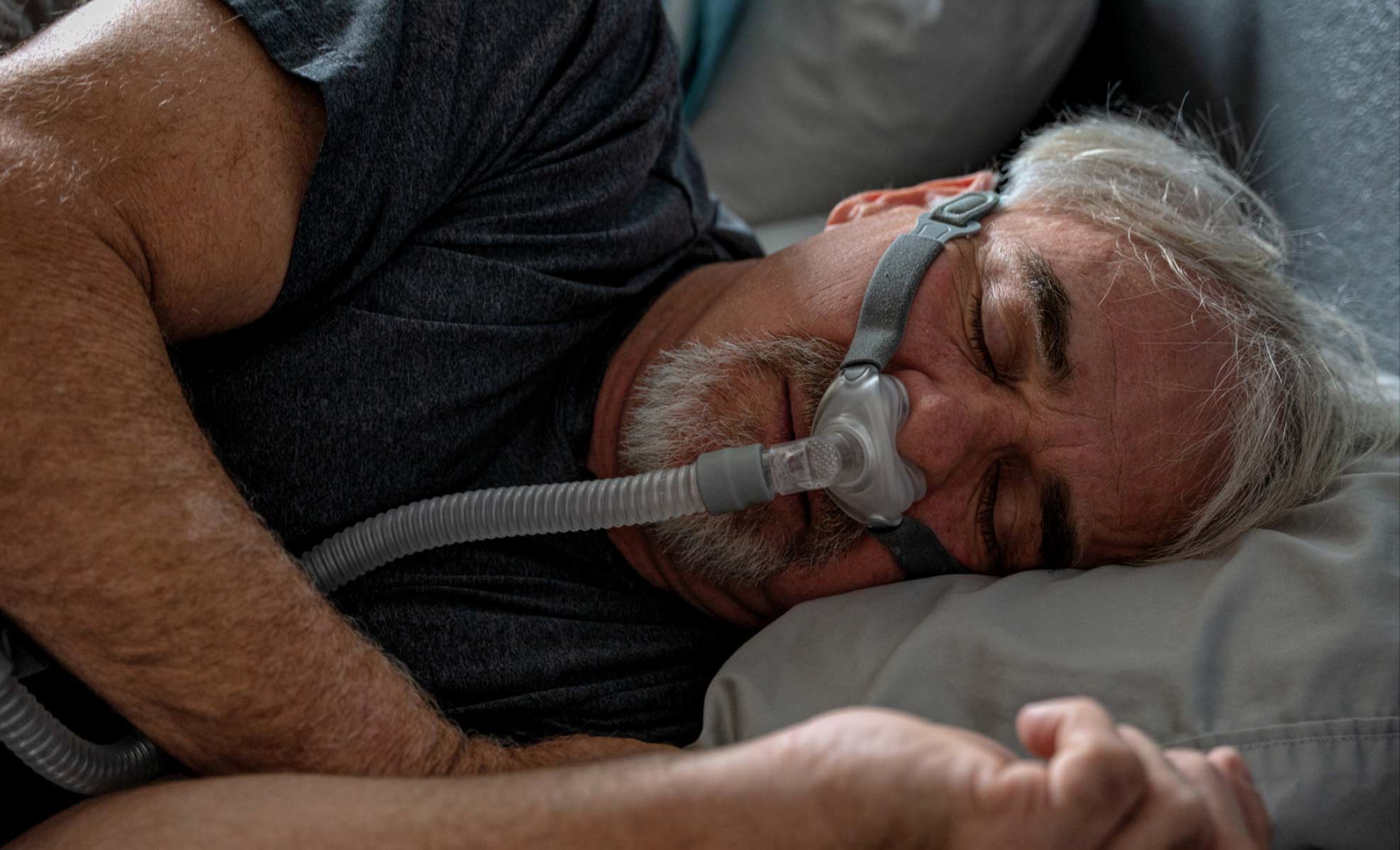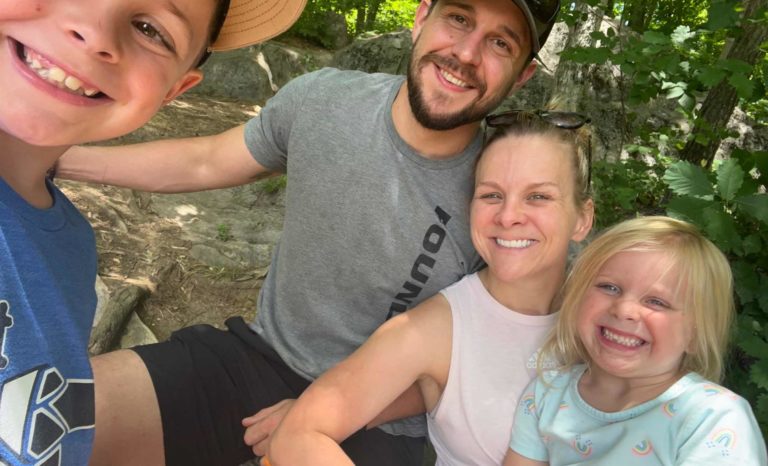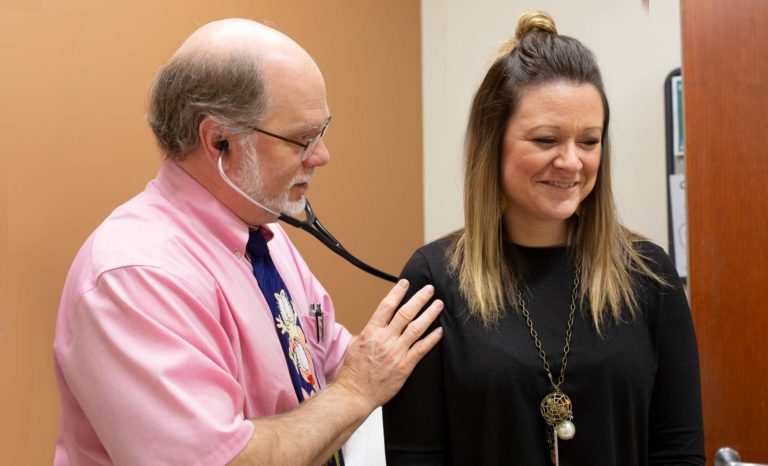There is a lot of focus on the sleep of infants and children as they grow up and their bodies develop. But what about the sleep habits of adults?
“Good sleep is very underrated,” says family nurse practitioner Amy Galloway, a sleep medicine provider at Holston Medical Group. Yet sleep is as important for adults as it is for children, and it can make all the difference in staying healthy.
“Think about your overall health in three categories: diet, exercise, and sleep,” Amy says. “Good, quality sleep helps promote brain health, improve your mood, and boost your immune system. It can also help prevent certain diseases like heart disease, high blood pressure, and strokes.”
More than 50-70 million people in the United States deal with sleep disorders. At HMG’s Sleep Center at Bristol West, Amy helps many patients who have problems sleeping.
What Is Good Sleep?
Amy says that someone who falls asleep within 30 minutes of going to bed and doesn’t wake up a lot in the middle of the night is getting good sleep. Most adults need about seven or more hours of sleep each night. You should wake up feeling full of energy and not tired.
Why it matters: Bad sleep can lead to chronic health problems, like:
- Heart disease
- Obesity or weight gain
- Diabetes
- Depression
- Less defense against diseases
What Are Sleep Disorders?
There are four main kinds of sleep disorders that can affect the way that you sleep:
- Insomnia: Trouble falling or staying asleep
- Sleep apnea: Breathing starts and stops while sleeping
- Narcolepsy: A sudden need to fall asleep, even during the day
- Restless leg syndrome (RLS): An urge to move your legs that you can’t stop
The big picture: Different kinds of sleep disorders are treated in different ways. Patients can sometimes find relief without medicine.

What Are the Symptoms of a Sleep Disorder?
Cynthia Dean is a Family Nurse Practitioner and sleep medicine provider who works with Amy at HMG Comprehensive Care Clinic at Medical Plaza in Kingsport. She says there are common symptoms of sleep disorders that people should watch for:
- Snoring regularly
- Gasping or choking during sleep
- Waking up tired
- Feeling slow and tired during the day
- Yawning a lot
- Feeling grumpy often
- Changes in mood including depression, anxiety, and stress
- Low energy
- Memory loss
- High blood pressure
- Obesity
How to monitor your sleep: You can measure how much sleep you’re getting — and if it’s “quality” sleep — through wearable technology like watches or sleep rings. These items can track good sleep and sleepless nights.
Where to go for a diagnosis: HMG has two sleep centers. One is in Kingsport at Medical Plaza. The other is in Bristol at Bristol West. If you think you might be suffering from a sleep disorder, you can schedule an appointment.
What Does Sleep Disorder Treatment Look Like?
When you first visit a sleep center, a specialist will talk to you about your health and your concerns. This will help them decide how sleep quality impacts your health. Then, they might schedule a sleep study. At HMG, sleep studies can be done at home or at one of our state-of-the-art sleep centers.
How sleep disorders are treated: Treatment can vary depending on the person. Sometimes a few simple lifestyle changes are all that’s needed. Sometimes medicines work well. Other times, people sleep with a device called a CPAP machine. “Once a diagnosis is made,” Cynthia says, “we can work together to figure out the right plan for you.”

The bottom line: It may take as many as six months, but many sleep disorder patients see:
- Lower blood pressure
- Better mood
- Lower blood sugar
- Clearer thinking
- More energy
Don’t Underestimate the Power of Good Sleep
If you think you might have a sleep disorder, schedule a meeting with a specialist at one of our HMG’s sleep centers in Kingsport or Bristol to improve your whole health.
A quick discussion with an HMG primary care provider can also help you learn more about how sleep can improve your overall health.
“It’s amazing what a good night’s sleep can do to reduce your risk of disease and improve your quality of life,” Cynthia says.







